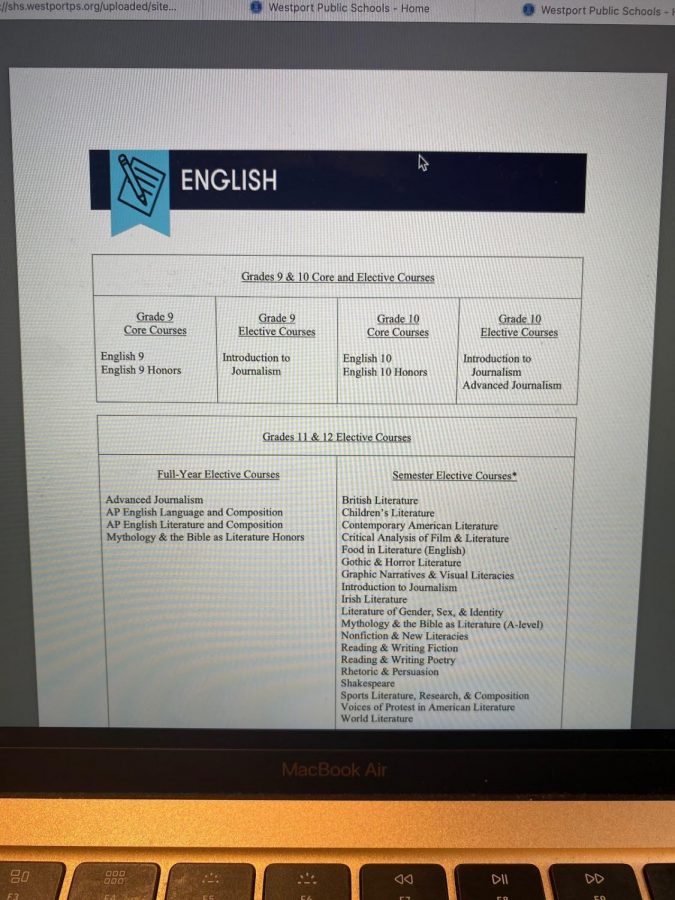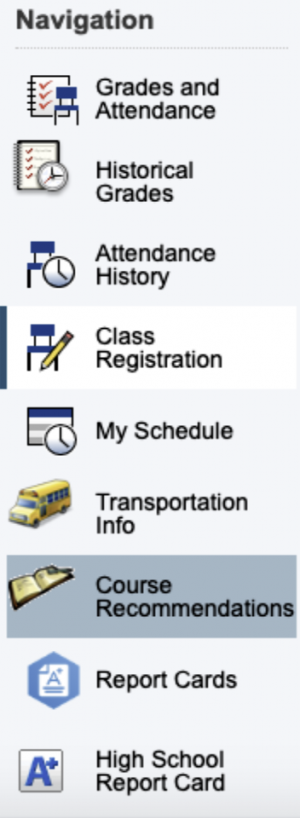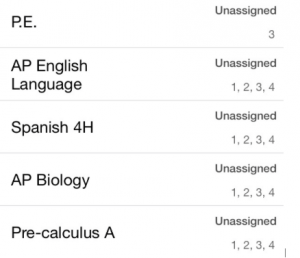Staples must provide more courses, freedom of selection to underclassmen
Photo taken by Julia Herlyn ’23
In the English department alone, it is more than evident that there is a great disparity between the course opportunities for underclassmen and upperclassmen.
When I was in eighth grade, filtering through Staples’ vast program of studies in anticipation for freshman year was initially overwhelming. I immediately took interest in some classes–East Asian Studies and World Literature, Reading & Writing Poetry and Culinary Arts–and was displeased when I glanced at the grade offerings and noticed that all of these courses, among many others, are wholly unavailable to freshmen, some being unavailable to sophomores as well.
As a rising junior whose schedule lacks the space to take any of these classes, I feel it is necessary to extend opportunities to freshmen to sign up for such courses, providing them the ability to take more area-based, fun and interactive course choices before tackling APs as upperclassmen. This promotes a more diverse high school experience, allowing students to learn more about different subjects, and may also assist students in discovering their interests and passions early on.
Many students, myself included, often overlook the virtue of learning for pleasure, instead focusing on the endless pursuit of college admissions, GPAs and SAT scores. Staples, a school notorious for its rigorous, demanding and competitive nature, cultivates an atmosphere where students (specifically upperclassmen) look to take as many AP classes as possible without having entirely sleepless, caffeinated nights.
As I mull over my schedule for junior year, I recognize that I, too, have succumbed to the pressures of the impending college process, wishing there were more than eight periods in a day to fill with the lost classes I will never take as a Staples student. Had these classes been available to me as an underclassman, I could and would have taken them.
Underclassmen should still be required to accumulate a certain number of credits per department each year. As opposed to forcing a subject upon them, such as Global Themes for freshmen and U.S. History for sophomores, the administration should allow younger students to explore the myriad electives that Staples offers. As many of these classes are semester-based, this would not only enrich students’ knowledge (as they could take multiple classes each year as opposed to one or two, depending on the student and their schedule), but may also allow them to discover their interests before having the opportunity to take related or similar AP classes as upperclassmen.
In this way, underclassmen would not learn any less than they would in accordance with the current graduation requirements. Perhaps they would even learn more, having the chance to study various subjects and discover what path they want to take in the remainder of their high school career.
Most importantly, I believe increased freedom of course selection encourages academic enjoyment, something that all students and educators should strive for. With such a unique, extraordinary program of studies–something that many other schools lack and Staples students should be grateful for–there is no reason why students should be confined to a set list of courses for their first, if not first two years of high school. Ultimately, Staples should support a diverse learning environment, encouraging students to freely immerse themselves in their individual interests.

Editor-in-Chief Julia Herlyn ’23 enjoys music. She’s been playing violin for nine years both in school with the Symphonic Orchestra and Chamber Orchestra...




















































